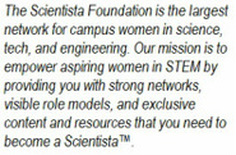|
By Destie Provenzano At some point if you’re an aspiring young scientist, engineer, mathematician, artist, or general education-erneer who has just graduated with a bachelors degree and is looking at what comes next in the world; you’re probably looking or have looked at graduate school as an option and are wondering where to even begin. Assuming we’re starting from the beginning, here are 10 tips for just general things to think about:
Comments? Leave them below!
2 Comments
1/8/2020 09:03:49 am
Thanks for the advice about choosing a graduating program that can offer you a high job placement rate. It makes sense one should keep this in mind because it can assure you a job right after finishing the programs. I know a person that's been thinking of becoming a fashionista and she needs to find the right trade school. Your tips will surely help her choose the right programs for her career.
Reply
Your comment will be posted after it is approved.
Leave a Reply. |
Education BlogAbout ScientistaSubscribe!NEW!New PostsWhat's HotClick to set custom HTML
You Might Like...
Connect With UsLatest tweets |
The Scientista Foundation, Inc. All Rights Reserved © 2011-2021 | Based in NY | [email protected]
The Network for Pre-Professional Women in Science and Engineering
The Scientista Foundation is a registered 501(c)(3) -- Donate!
The Network for Pre-Professional Women in Science and Engineering
The Scientista Foundation is a registered 501(c)(3) -- Donate!



 RSS Feed
RSS Feed









